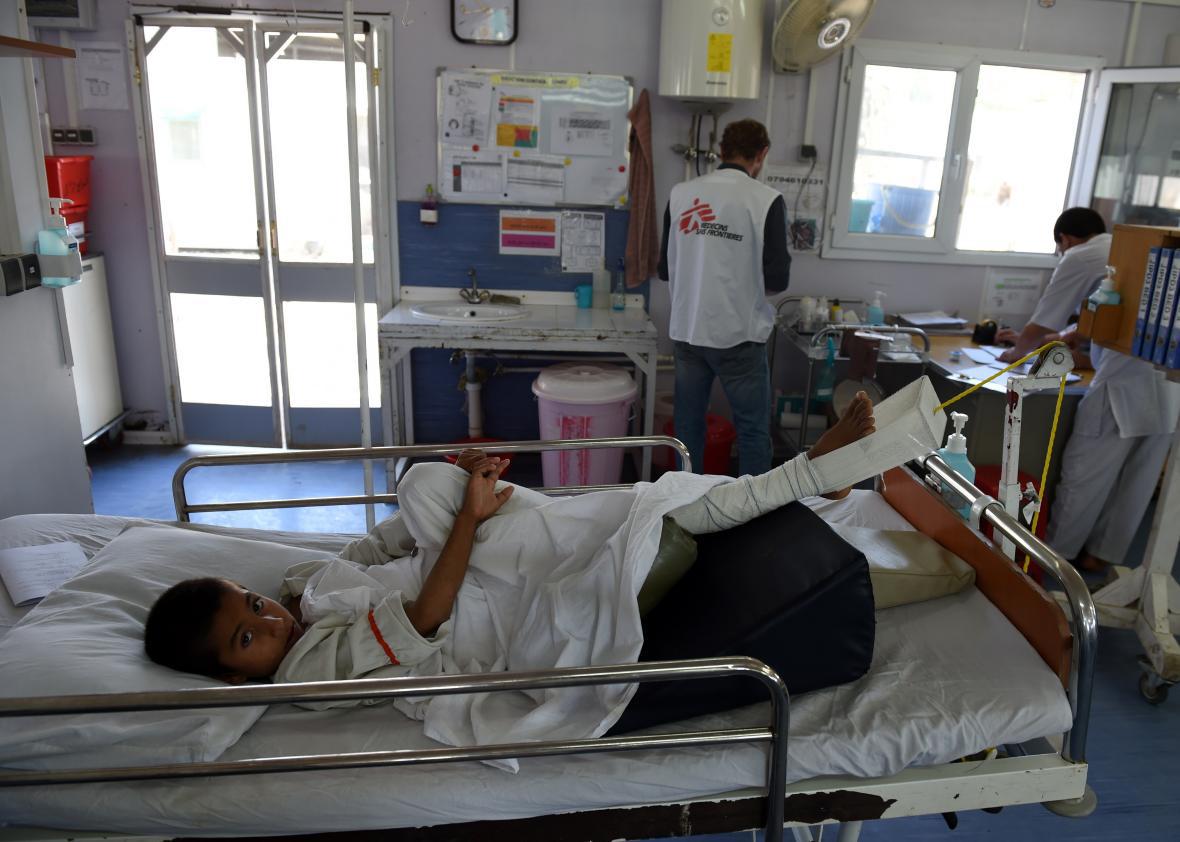Doctors Without Borders is demanding an independent investigation into the apparent U.S. airstrike on a hospital that killed 22 people, including 12 of its staff members, near Kunduz, Afghanistan, this past weekend. Civilian casualties from U.S. airstrikes have been a continual source of tensions between the U.S. and Afghan governments, so you might expect Afghan leaders to be backing the call for accountability. But the two governments actually appear to be relatively on the same page: expressing regret for the civilian deaths and promising an investigation, but suggesting that the airstrikes themselves were justified.
So why isn’t there more anger from the Afghanistan government over the incident?
Previous President Hamid Karzai frequently lashed out at both the Bush and Obama administrations over casualties in coalition airstrikes and raids in Afghanistan, accusing the Americans of a disregard for Afghan lives. Karzai, who also frequently suggested that the U.S. wanted the violence in Afghanistan to continue and was deliberately trying to weaken his government, used civilian casualties to bolster his case for a more limited role for international troops after the formal end of combat operations in 2014.
Today, the political context is much different. Even before the Taliban overran Kunduz last week, President Ashraf Ghani, faced with a deteriorating security situation, had been pushing the Obama administration to reconsider its plan to withdraw all U.S.-led coalition forces from the country by the end of 2016. The Taliban’s taking, with relative ease, of its first major city since 2001, has raised the stakes further. U.S. airstrikes have made it possible for Afghan forces to retake control of at least part of the city and officials aren’t really in a position to criticize those strikes too heavily. U.S. officials have said anonymously that American special forces advising Afghan commandos in the area of the hospital requested the airstrike after coming under fire. A member of parliament from the Kunduz area told the New York Times that “a lot of senior Taliban” were killed in the attack in addition to the civilian casualties.
Afghanistan was the deadliest country in the world for aid workers last year, according to the annual Humanitarian Outcomes report. The U.N. and nongovernmental organizations have blamed the changing nature of warfare for the recent increase in attacks on aid workers, with the majority of wars now fought in civilian areas by nonstate actors who routinely target civilians and ignore the rules of war. Nonstate actors like the Taliban may be responsible for the vast majority of attacks on civilians and aid workers, but as this weekend shows, these deaths can also come at the hands of the world’s most powerful and advanced military.
Doctors Without Borders, which routinely operates in some of the world’s most dangerous conflict areas, is now shutting down the hospital near Kunduz, meaning there will be one less badly needed resource for civilians caught in the middle of the ongoing battle.
